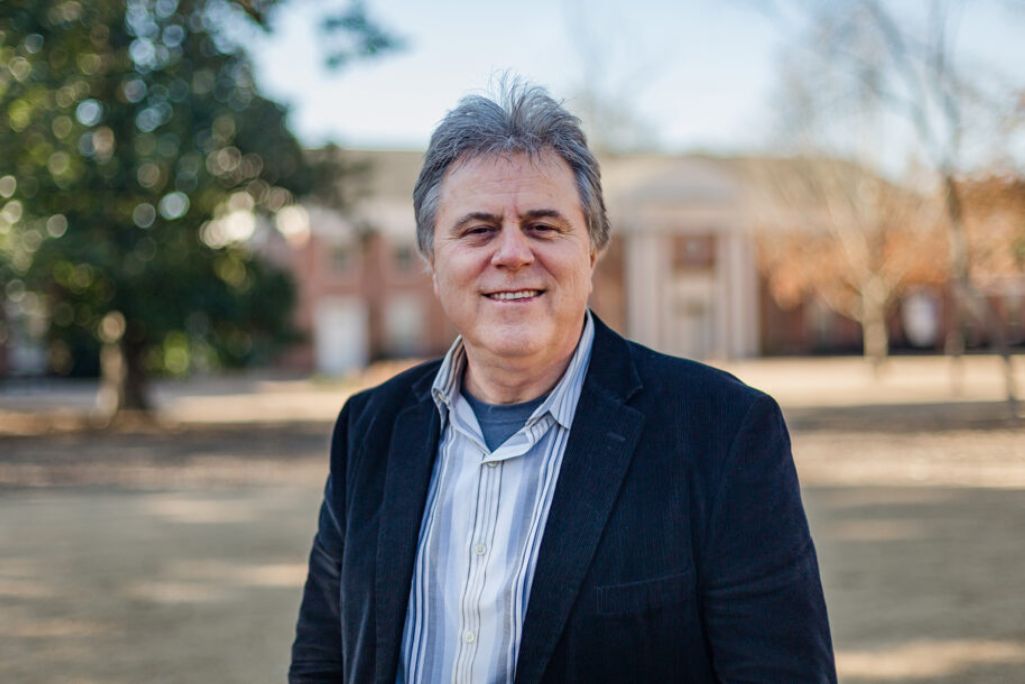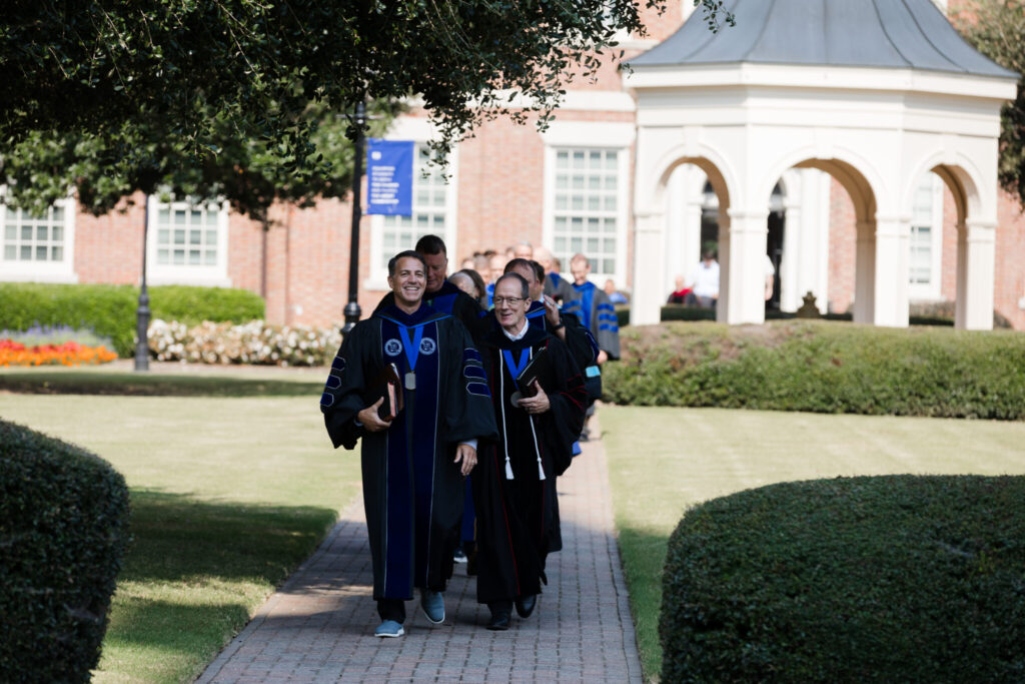The L. Russ Bush Center for Faith and Culture (CFC) at Southeastern Baptist Theological Seminary (SEBTS) hosted a panel concerning the nature of personhood across disciplines on June 14 at the annual meeting of the Southern Baptist Convention (SBC) in Anaheim, CA.
Representing a Christian perspective on abortion, panelists discussed what the scriptures and the sciences tell us about the value of life and how Baptists can champion the value of life in any context. Panelists included Dean Nelson (vice president of Government Relations of Human Coalition and chairman of The Frederick Douglass Foundation), Erin Smith (associate professor of psychology, Fletcher Jones Endowed professor of research, and director of research for the Center for the Study of Human Behavior at California Baptist University), Mark Liederbach (senior professor of theology, ethics and culture; dean of students; and vice president for student services at SEBTS), Jason Thacker (director of the research institute of the Ethics and Religious Liberty Commission—ERLC), and Lisa Rowe (licensed clinical social worker and chief executive officer of Support after Abortion)
“This panel addressed how the concept ‘person’ is understood in the different arenas of law, science and biblical studies,” recounted Ken Keathley, senior professor of theology at SEBTS, Jesse Hendley Endowed Chair of Biblical Theology and director of the CFC.
One of the foundational questions in the Christian worldview is “What is a human, and what does it mean to be human?” noted Thacker. As the mantra “My body my choice” dominates the contemporary discourse in various arenas of life, “The Christian worldview teaches that God made us in His very image,” shared Thacker. “You are not a self-determining being; you are not in control; you do not define reality. God does. God created you.”
The church has a huge opportunity to get it right.
Although it is commonplace to caricature Christians as antagonists to human freedom and flourishing, Liederbach reminded attendees that God intends “holistic human flourishing.”
As the language of the abortion debate has shifted over the last 50 years, some have distinguished between the designations “human being” and “human person;” however, according to the Christian worldview, “There is no distinction between a human being and a human person,” commented Liederbach. All five panelists reiterated the importance of precision with terminology in the debate and encouraged attendees to remain alert to language that excuses abortion by redefining life and personhood.
Commenting on how abortion has been coopted by political debate, Rowe noted that “abortion is polarizing, but it is ultimately a heart issue.” As a heart issue, abortion causes deep and extensive trauma for those touched by the choice to abort a human life. Although many people may not have performed, pursued or consented to abortion, the effects of abortion touch most families, neighborhoods and congregations. “One in four women will have an abortion by her 45th birthday,” reported Rowe.
You are not a self-determining being; You are not in control; You do not define reality. God does. God created you.
“Everything we do changes our brain,” commented Smith, explaining that the trauma of abortion has lasting psychological effects on the mother, the father, their families who are aware of the abortion as well as those who drove the mother to the clinic or counseled others to pursue abortion.
Helping attendees understand the complex factors underlying a decision to abort a human life, Rowe shared stories of men and women affected by abortion, recounting personal stories she encountered while ministering to men and women after abortion.
Commenting on the political climate and the potential overturn of Roe v. Wade, Nelson noted that “the Church has a huge opportunity to get it right.” Nelson encouraged attendees to learn from historical responses to other human rights issues and to remain engaged not only through church and nonprofit ministries but also through the political process.
One in four women will have an abortion by her 45th birthday.
“We were thrilled to partner with the ERLC for the Valuing Life panel at the annual Southern Baptist Convention,” noted Benjamin Quinn, moderator of the panel, associate professor of theology and history of ideas at SEBTS and associate director of the CFC. “Building upon our first year of a three-year Templeton grant focusing on ‘Defining Humans,’ we were excited to hear from our panel of ethicists, psychologists, lawyers and pastors about the value of human life.”
This valuing life panel discussion was made possible by the John Templeton Foundation, which awarded SEBTS with a $1.53 million grant to fund its Being Human: Theology and Praxis project. Because of this significant grant, Southeastern has been able to host numerous academic events, public forums and live-streamed conferences about what it means to be human from a biblical worldview. To read more about the grant and the SEBTS vision for the Being Human: Theology and Praxis project, check out this headline.
By hosting events, mentoring students and resourcing churches and church leaders, the CFC seeks to engage culture as salt and light, presenting the Christian faith and demonstrating its implications for all areas of human existence. By biblically addressing topics and issues facing the church and the world, the CFC exists to equip and embolden students to integrate faith in every aspect of their lives. For more information about the CFC visit cfc.sebts.edu.
(EDITOR’S NOTE – Chad Burchett is a writer for the SEBTS office of communications.)


